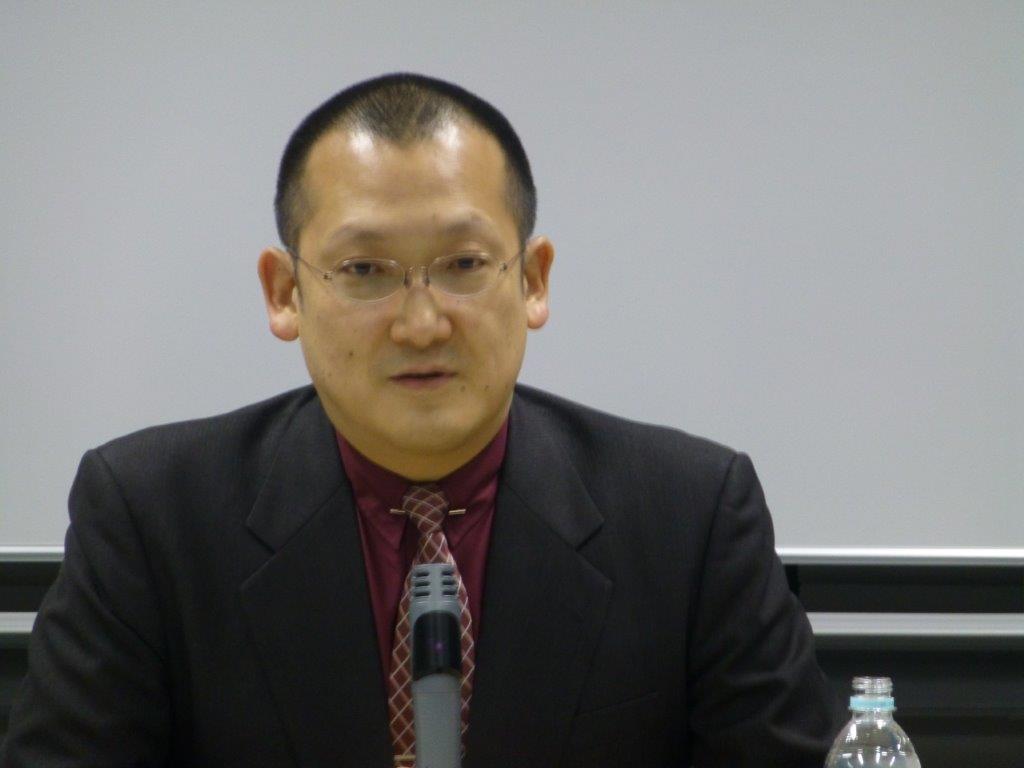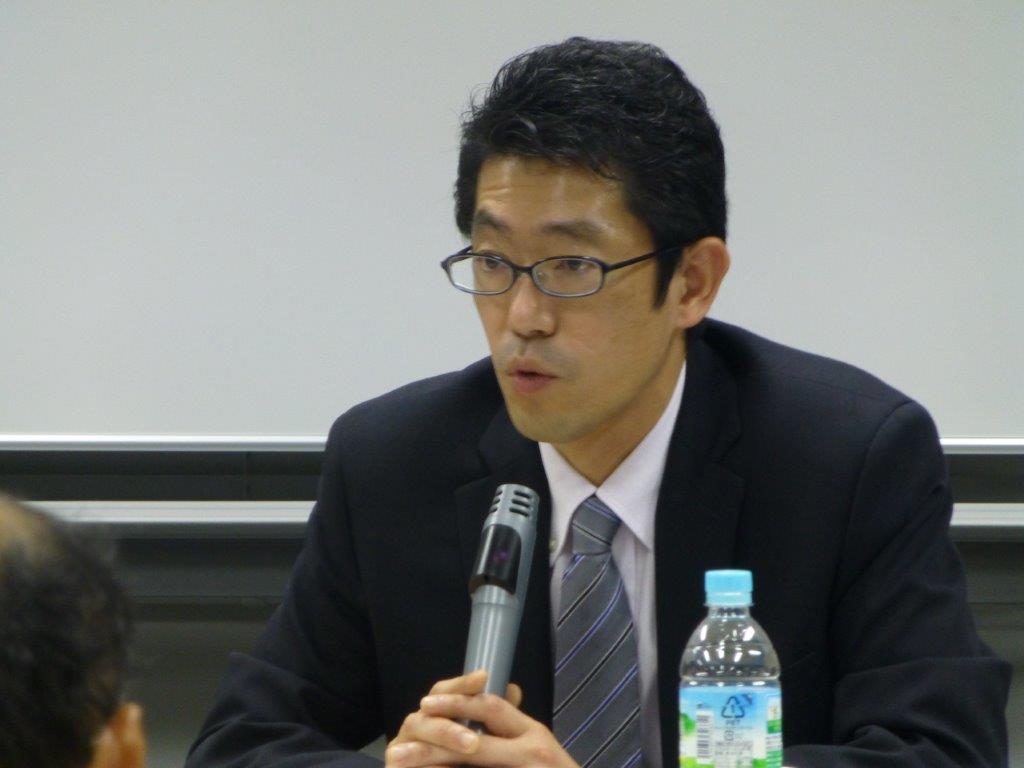2016年11月16日 HPI研究フォーラム
講師
林 伸生(オスロ国際法政策研究所(ILPI)上級法律顧問)
戸崎洋史(日本国際問題研究所軍縮・不拡散促進センター(CPDNP)主任研究員)
広島平和研究所では、下記のとおりHPI研究フォーラムを開催しました。


1. テーマ
「核兵器禁止化の世界的な動きと日本の選択肢」
2. 日時
2016年11月16日(水) 18:00~20:00
3. 場所
広島市立大学サテライトキャンパス セミナールーム2
広島市中区大手町4-1-1 大手町平和ビル9階 (市役所本庁舎向い)
4. 講演の概要
ここ数年、核兵器の人道的影響を根拠にその禁止を目指す動きが盛り上がりを見せている。今年暮れの国連総会は、禁止条約締結へ向けた多国間交渉の早期開始決議を採択するかどうかをめぐって紛糾することが予想される。好む・好まざるに関わらず、禁止化は現実味を増しているといっていいだろう。核不拡散・段階的核軍縮といった伝統的なアプローチと一線を画すこの試みは、核兵器を持たない国々や市民社会の支持を集める一方、核保有国・核傘下国から安全保障の考慮を欠くなどと強く批判されてきた。そうした中、唯一の被爆国かつ核抑止享受国としての立場にある日本はどう対応するべきであろうか。この度、オスロ国際法政策研究所と日本国際問題研究所軍縮・不拡散促進センターは核兵器禁止先行条約が日本へ及ぼす影響について共同レポートを作成した。発表を兼ねた本フォーラムでは、様々な論点を整理しながら、条約交渉・締結に際しての日本の選択肢を推進論および慎重論の両面から明らかにし外交政策決定上のポイントを探る。
5. 講師の略歴
林 伸生
オスロ国際法政策研究所(ILPI)上級法律顧問。1970年生まれ。2000年から2006年まで、国連旧ユーゴスラビア国際刑事裁判所検察局法務官として起訴状起草・査読、趣意書執筆のほか、国際人道法・国際刑事法・国際公法関連の法律顧問業務に従事。ノルウェー人権研究所法律顧問、オスロ平和研究所研究員、オスロ大学法学部研究員、国際大学客員研究員などを経て、2012年より現職。2014年核兵器の人道的影響に関する第三回会議(ウィーン)でパネリストとして講演。国連地域間犯罪司法研究所客員講師を兼務。軍事的必要性、武力の威嚇、核兵器の法・倫理その他関連事項に関する論文多数。
戸崎洋史
日本国際問題研究所軍縮・不拡散促進センター(CPDNP)主任研究員。1971年生まれ。大阪大学大学院国際公共政策研究科博士後期課程中途退学。博士(国際公共政策)。九州大学客員教授、国際基督教大学客員講師などを歴任。専門は核軍備管理・不拡散、核戦略・抑止論など安全保障問題。主要な著書に、『安全保障論―平和で公正な国際社会の構築に向けて』(共編著、信山社、2015年)、『NPT―核のグローバル・ガバナンス』(共著、岩波書店、2015年)など。
HPI Research Forum on November 16, 2016
〝Implications of a Nuclear Weapons Ban Treaty for Japan: The Difficult Decision Japan Faces If the Treaty Negotiations Commence″
By Nobuo Hayashi, Senior Legal Advisor, the International Law and Policy Institute (ILPI), and Hirofumi Tosaki, Senior Research Fellow, the Center for the Promotion of Disarmament and Non-Proliferation (CPDNP)
The Hiroshima Peace Institute held an HPI Research Forum as follows:
1. Topic
"Implications of a Nuclear Weapons Ban Treaty for Japan: The Difficult Decision Japan Faces If the Treaty Negotiations Commence"
2. Date and Time
November 16, 2016 (Wed.) 18:00-20:00
3. Venue
Seminar Room 2, Satellite Campus, Hiroshima City University
4-1-1 Otemachi, Nakaku, Hiroshima
9F Otemachi Heiwa Building
4. Abstract of the Forum
Recent years have witnessed growing momentum towards a nuclear weapons ban. The 2016 UN General Assembly will consider adopting a draft resolution on the commencement of multilateral treaty negotiations to that effect. Although it is not entirely clear what specific form the instrument will take, a Nuclear Weapons Ban Treaty (NWBT) is a likely candidate among other possibilities, such as a comprehensive Nuclear Weapons Convention (NWC) or a more flexible framework convention.
This novel approach to nuclear disarmament and nonproliferation has gathered wide-spread support from non-nuclear-weapon states and civil society. Meanwhile, it has attracted strong criticisms among nuclear-armed as well as umbrella states for whom the current trend overlooks weighty security dimensions. As a victim of atomic bombings yet a beneficiary of the US nuclear umbrella, where should Japan situate itself?
Two ILPI and CPDNP experts have examined Japan's position from various perspectives. At this HPI forum, which coincides with the publication of their co-authored ILPI report, we will discuss the pros and cons of the options Japan has.
5. Profile of Lecturers
Nobuo Hayashi is a Senior Legal Advisor at the International Law and Policy Institute (ILPI), Oslo. His areas of specialization include the law of armed conflict, international criminal law, the law on use of force and general public international law. He has more than fifteen years of experience writing and editing academic publications, preparing court documents and advising international prosecutors, and teaching in these areas.
Hirofumi Tosaki is a Senior Research Fellow of the Center for the Promotion of Disarmament and Non-Proliferation (CPDNP), the Japan Institute of International Affairs (JIIA). He is an author of numerous articles on nuclear arms control, non-proliferation, nuclear strategy and deterrence, missile defense and so on. He earned his Ph.D from Osaka University.
